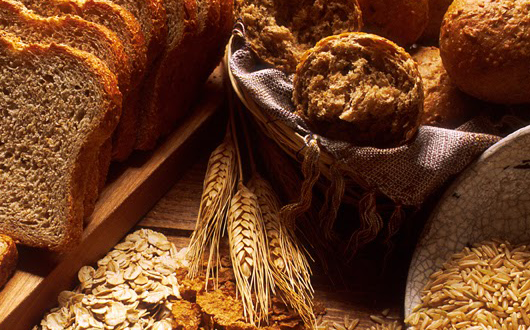
If you could feed your kids superfoods for the brain that would have long lasting educational benefits (in addition to the health benefits), you would do it, right? In addition to buying educational toys, brain stimulating books, and other technology that will supposedly enhance your child’s brain health, consider nurturing your children’s brain health during vital emotional and physical growth periods by feeding them brain foods. These superfoods will give them the edge they need to help them absorb as much as possible when it comes to stimulating neurological development.
Don’t Skip Breakfast

Everyone has heard the saying that breakfast is the most important meal of the day. Well, research is showing that eating breakfast can improve memory and learning skills in school age children. Don’t load them up with a sugar-filled breakfast though, as sugar can make it hard for children to concentrate. Try oatmeal with a pinch of sugar or blueberries.
Blueberries
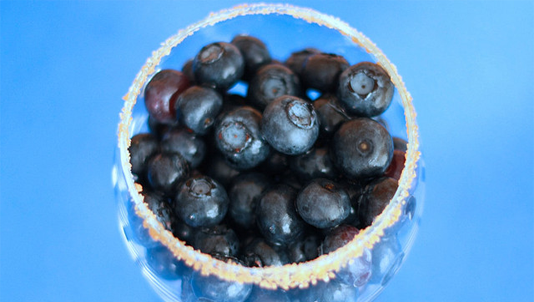
Speaking of blueberries, these antioxidant-rich berries help rid the body of free radicals and can ward off other age-related diseases. It’s never too early to prevent them, especially if genetics are working against you. According to the USDA Human Nutrition Center (or HNRCA), blueberries actually rank first in antioxidants when compared to 40 fruits and veggies. How about a fruit smoothie instead of a fattening, sugary milkshake?
Sweet Potatoes
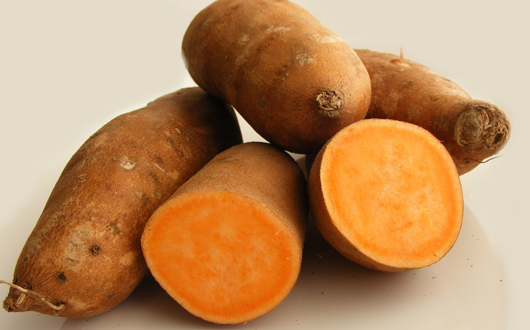
Sweet potatoes are one of the most nutritious vegetables there is. In addition to regulating blood sugar, sweet potatoes are loaded with vitamin C, potassium, fiber, vitamin A, folate, iron, and calcium. Substitute mashed sweet potatoes with regular mashed potatoes for dinner. If your kids are resistant, try adding a pinch of brown sugar, or make sweet potato fries in the oven with grade B maple syrup for dipping.
Broccoli
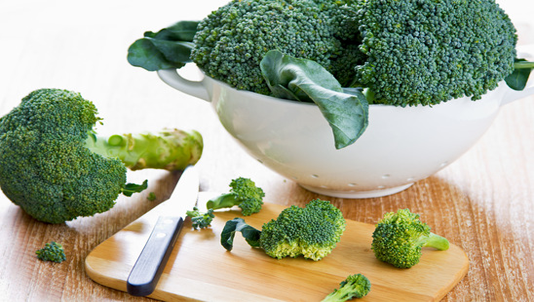
Broccoli and other green veggies are often dreaded by kids. Broccoli is full of fiber, vitamins, and minerals which help prevent cell damage and can improve eyesight. While raw is best, you can also steam broccoli or add it into a casserole or stir fry. Try raw broccoli with light or homemade salad dressing dippers, Alternatively, try sprinkling a dash of seasoning or Parmesan cheese on steamed broccoli.
Tofu
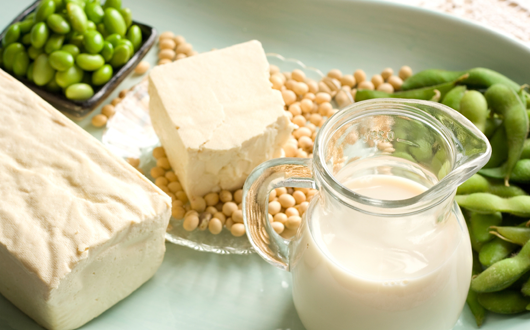
Tofu and other soy products are a great source of protein that also have cancer-fighting properties. Soy is especially beneficial in young girls as it protects their breast tissue and bodies while going through puberty, and the effects can last into adulthood. Try substituting silken tofu for yogurt in fruit smoothies or serve steamed edamame with dinner.
Greek Yogurt
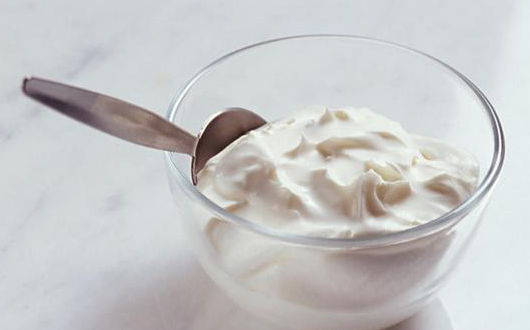
Low-fat Greek yogurt that contains the healthy GI bacteria acidophilus boosts your immune system and aids in digestion. Antibiotics and an unhealthy lifestyle can kill good intestinal bacteria. Eating yogurt or probiotics can help supplement and promote intestinal flora growth. One cup of yogurt contains 13 grams of protein and 447 mg of calcium. Add a little granola, honey (if your child is over the age of 1), maple syrup or even a drop of agave syrup.
Whole Grains

Instead of processed white bread, crackers and pasta, look for whole grain varieties. Whole grains are high in folic acid, zinc, iron, vitamin B, vitamin D, and calcium. Avoid pre-packaged or processed whole grains that have unsaturated fat or trans fat.
Coconut Oil

Coconut oil contains medium-chain triglycerides, which reduce brain inflammation. In addition, studies are examining the usefulness of coconut oil in decreasing autism symptoms. Coconut oil is high in fat, but it’s showing that it helps break down abdominal fat stores, which are some of the hardest types of fat to lose. Use it to grease your pan for cooking in lieu of cooking spray, add it to smoothies and you can even use it in homemade beauty products.
Omega-3s
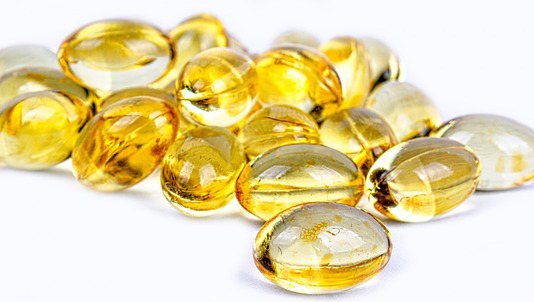
Fatty fish, like salmon, is a great source of omega-3 fatty acids, which are important for brain growth and functioning. Research shows numerous positive effects from omega-3s, particularly when it comes to cardiovascular and brain health. Omega-3s show improvement in memory, attention span, problem solving, vocabulary, and have even been shown to positively affect depression and dementia or Alzheimer’s. Try making salmon patties on whole wheat. If your kids are really picky, try tuna fish or even fish sticks made with whole wheat breadcrumbs.
Natural Peanut or Almond Butter
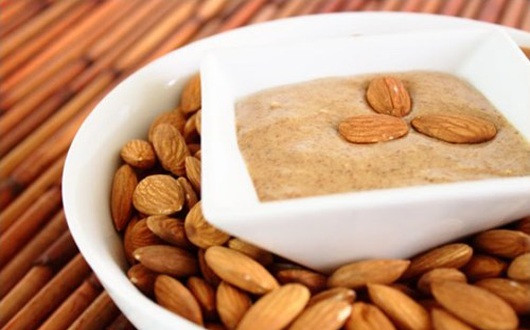
Most regular brands of peanut butter on grocery shelves are high in sugar and trans fats. Look for (or even make homemade) natural peanut or almond butter as a healthy alternative. Aim for brands that only have one or two ingredients to eliminate chemicals. This way your children can still enjoy the healthy fats without all of the extra additives.
Avocados
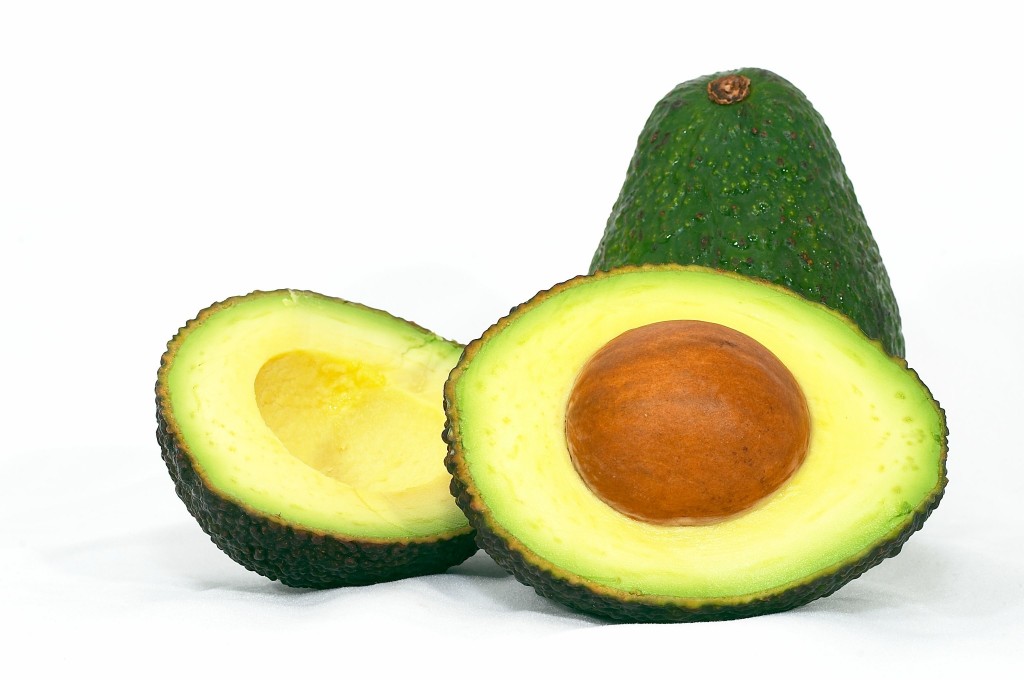
Avocados are yummy, creamy, and a good source of monounsaturated fat. Eaten in moderation, these healthy fats help aid in growth and development. Did you know that over 60% of your brain is fat? It makes sense that healthy fat would be “brain food” essential to brain development. Add some avocado chunks to salad, make a spread for crackers, or even make guacamole.
Things you can do to stimulate mental growth in addition to feeding your kids brain superfoods include:
- Use hand gestures and facial expressions when talking to your kids, so they can associate and learn words.
- Start giving them books when they’re born. You can put cloth books in cribs and waterproof books in the tub. As they get older, make sure there are plenty of books in reach. Make it a habit to read to your child every day.
- Reduce time spent in front of the TV. Encourage reading, playing, and building cognitive skills early on. Let TV be an occasional treat. When they do watch TV, make sure it is wholesome viewing that they can learn from while having fun.
- Take your kids to the library and book store. Go to story time at your local library. Show them fun and comfortable places to curl up with a good book.
- Sing nursery rhymes, lullabies, and poetry to your children. This will help nourish their vocabulary and inflection skills.
Enjoyed 10 Powerful Superfoods To Boost Your Child’s Brain? Share it with your friends so they too can follow the Superfoodsliving journey.
Share on Pinterest